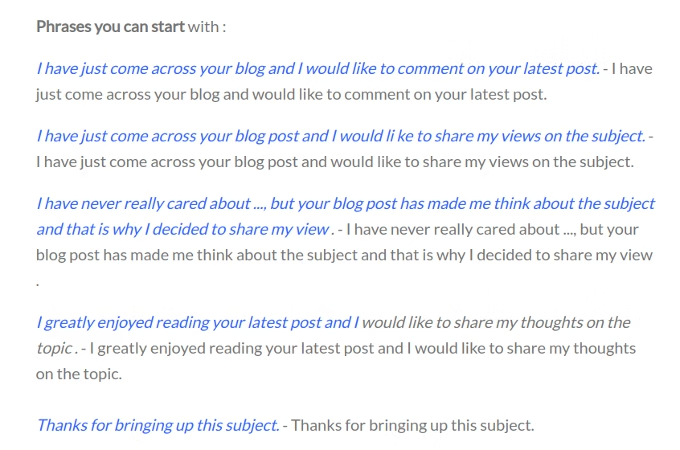Contents
Back in the days of SEO, blog commenting was one strategy guaranteed to increase rankings. Leaving considered and relevant comments can garner backlinks, increasing the website’s exposure and further improving domain authority on high-authority blogs. As search algorithms became smarter and evolved, so did the SEO benefits from blog commenting.
The Effect of Google’s Algorithm Updates
Blog comments have undergone lots of changes as search engines began indexing more frequently and with each update-in-phew more often-than usual. As they once formed a big chunk of the pack rank factors, their effect has got minimized in time. The reasons could be:
Spammy Commenting: SEOs/marketers had a lot of leeway before: some went with spammy commenting methods, including leaving random comments with keyword-laden anchor texts for the only purpose of ranking. That was when Google stepped in with firmer guidelines: unfair use by low-level comments would not aid rank.
Focus on High-Quality Content: Google will now figure content worthy and original as a priority. Comments may help in bolstering a precise website’s overall authority, though they are no longer the deciding factor.
User Experience: Emphasis on user experience means that websites with engaging content, fast loading time, and mobile-friendliness will fare well on the ranking.
The Benefits of Blog Comments, Even in 2025
Blog comments, in essence, may not pack as much SEO punch as at one time, yet they constitute an excellent host of passive advantages.
Building Relationships: By commenting, you may build valuable relationships with fellow bloggers and other industry experts. Such partnerships can further foster interactions and interchanges of guest posts and now and then privileges.
Generating Backlinks: Less frequent nowadays than they once were, genuine comments on authority blogs can sometimes generate backlinks. These are two classes of backlinks – one type has an immediate effect, and the other works for building the strength of the domain authority in the long term and thus results in higher ranking in Google search engine.
Getting Discussions Going: A reaction to a comment creates an engaged community around your blog and gives space to more discussion. You create engagement and repeat visits.
Improving Content Quality: Looking for questions and feedback in comments might highlight the instances where improvements in contents need to be made. This can help in providing content that is more relevant and helpful to the target audience.
Best Practices for Commenting
When it comes to maximizing your productiveness of blog commenting, here are some things you should do:
Be Authentic: Put utmost value to the presentation of the discussion in your comments; do not spam or publicly solicit for a product.
Be Relevant: Issues should only be about the blog post.
Be Respectful: Of course, respect is paramount even if you disagree with the blogger or fellow commenters.
Use Keywords Sparingly: It can give your comment a little bump in visibility, but don’t stuff them in.
Link Wisely: Never, ever link your site in a comment unless it is relevant and can be naturally slotted in.
Respond to Comments: Responding to your commentators develops loyal followers and draws more interaction.
The golden days of comment backlinks for SEO may be gone. Yet, these do hold some value in building a complete digital marketing plan.
Remember, the key to SEO is a good holistic approach that involves high-quality content, technical SEO, and good link-building strategies.

